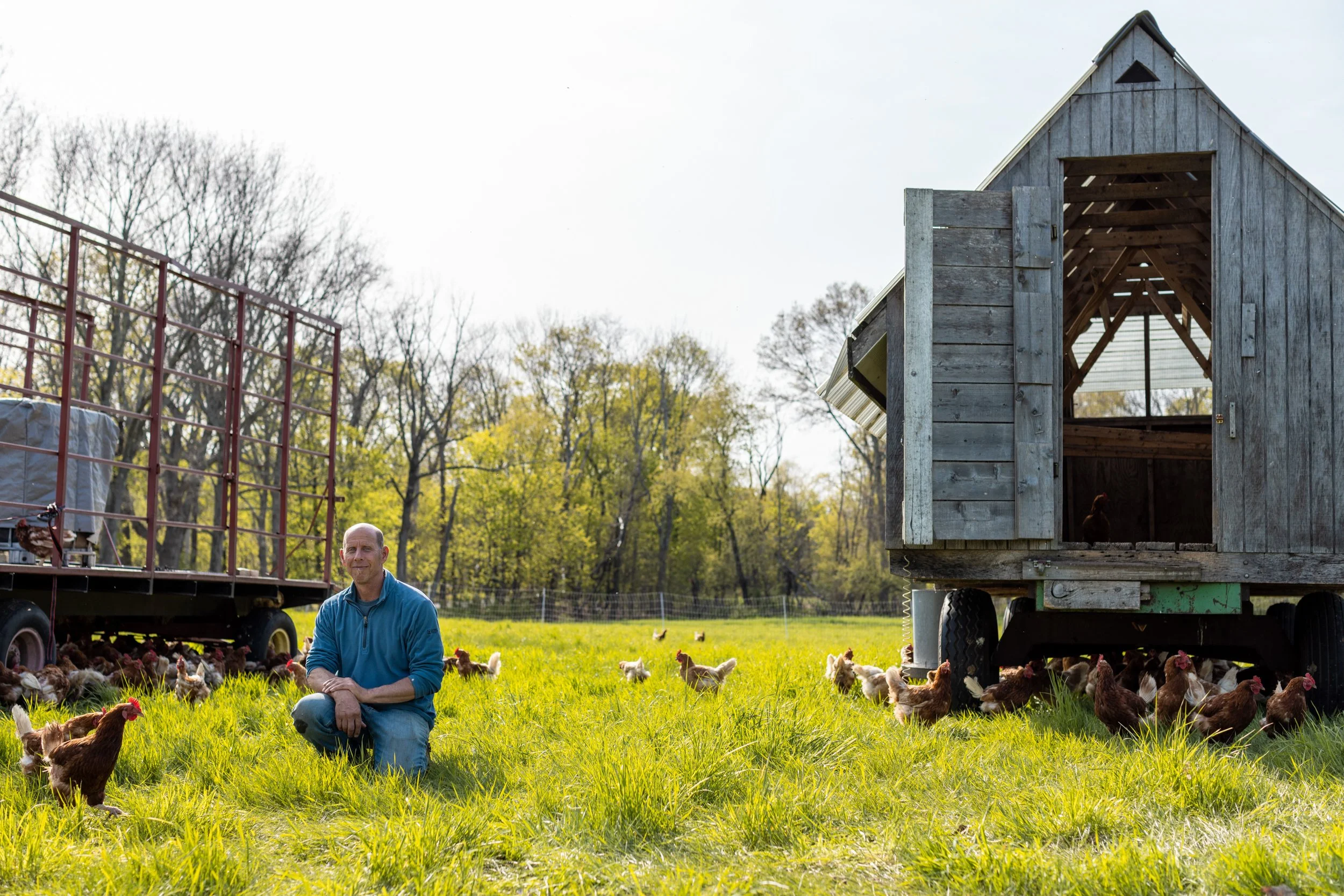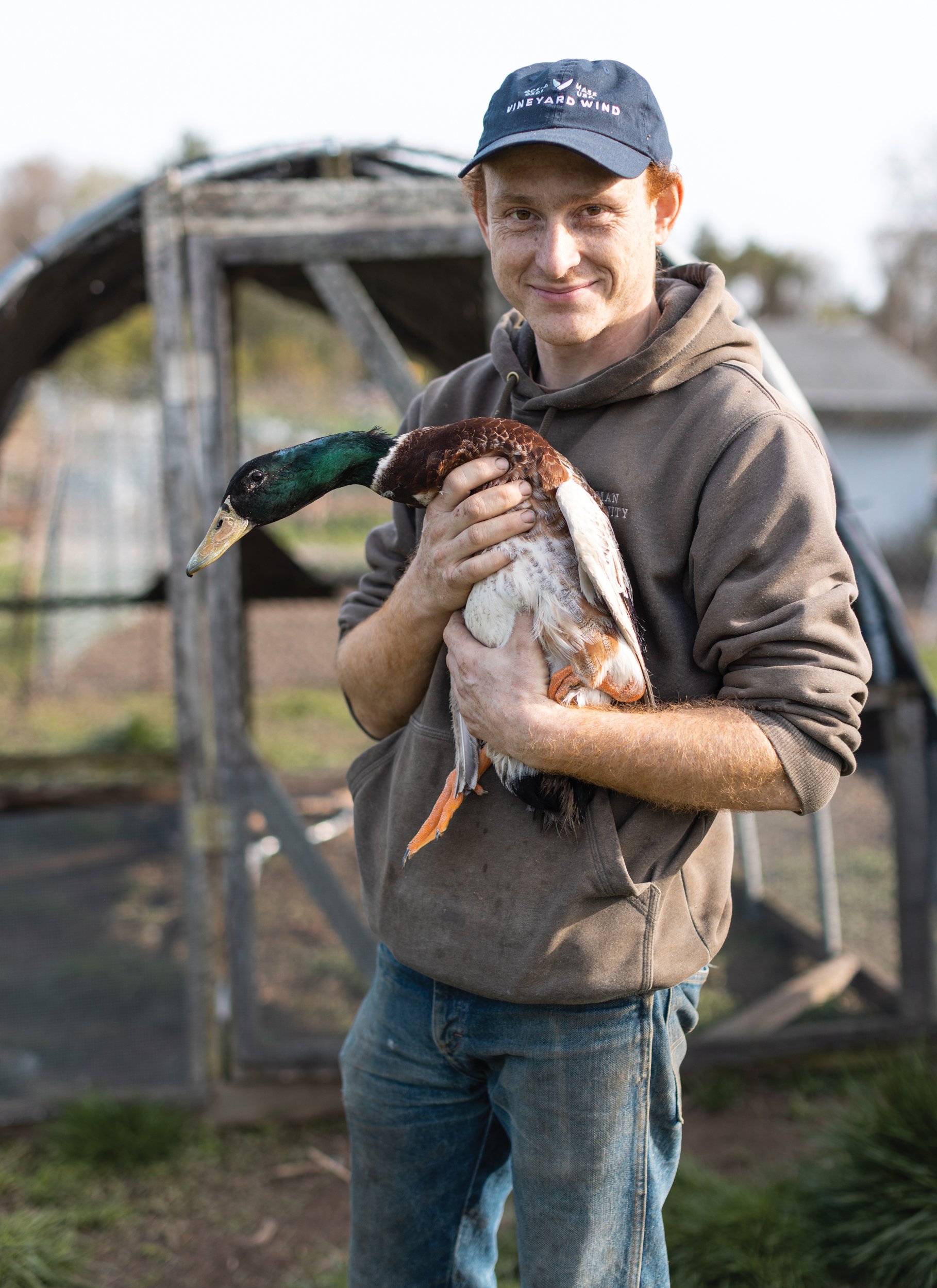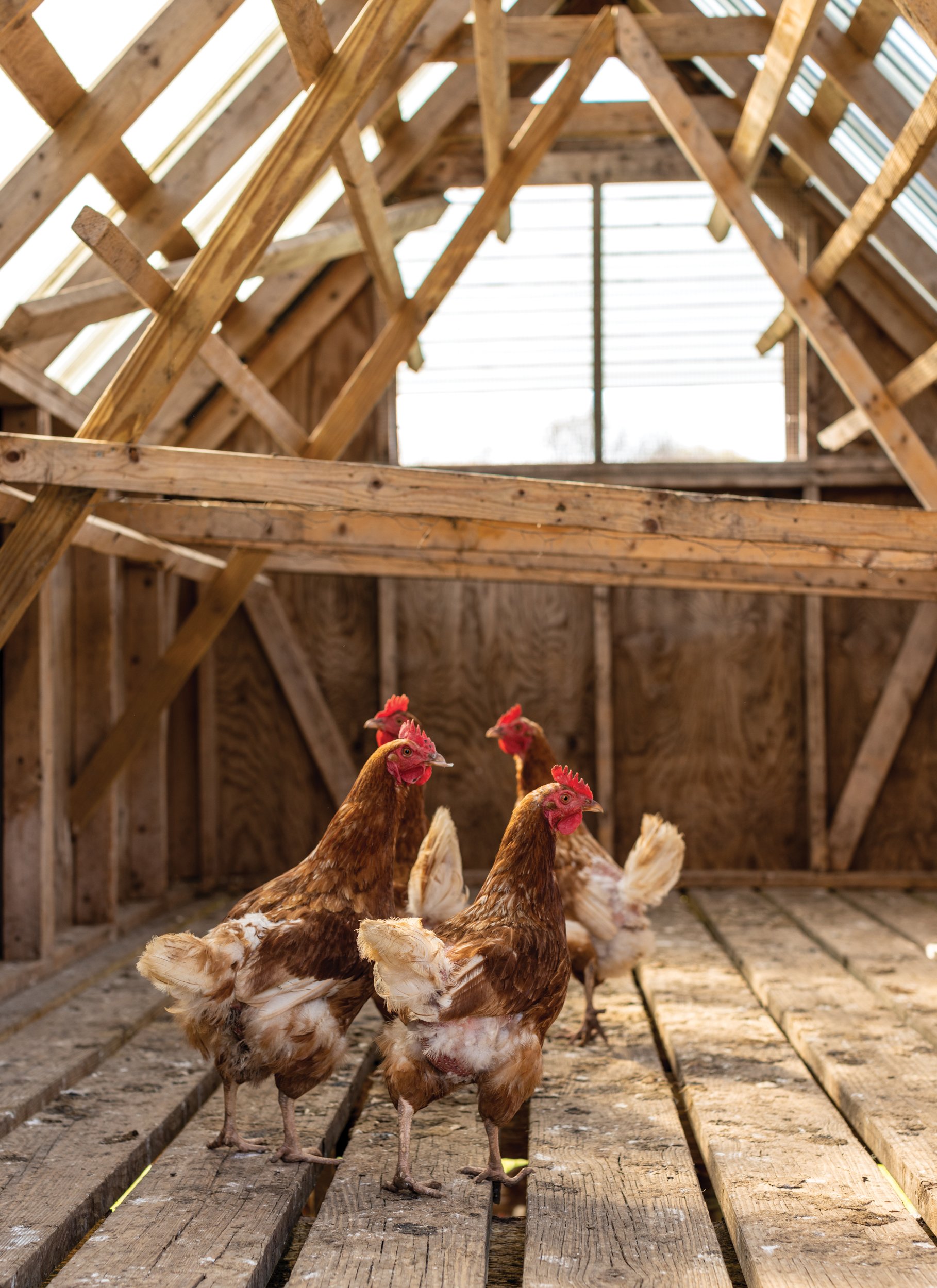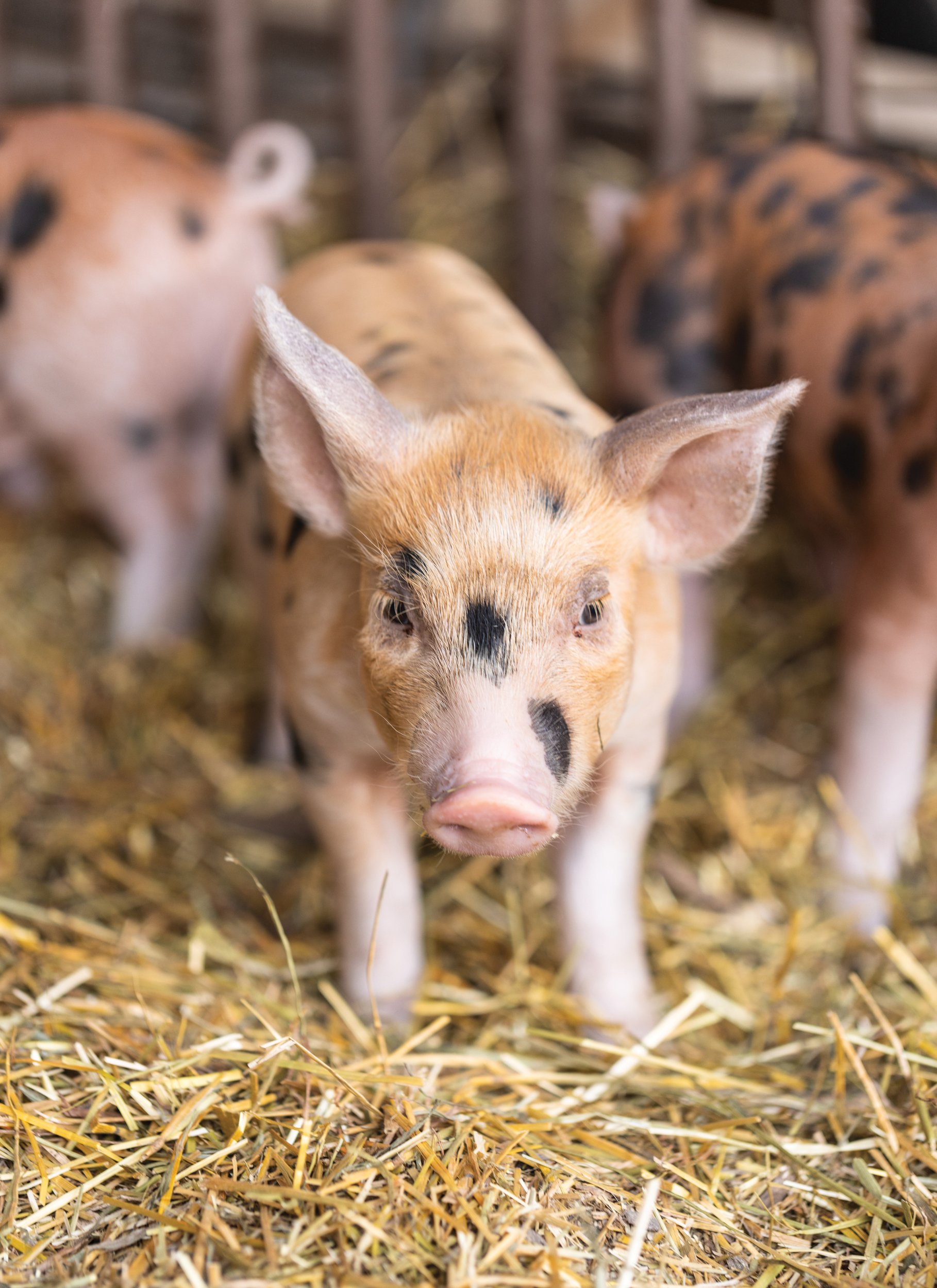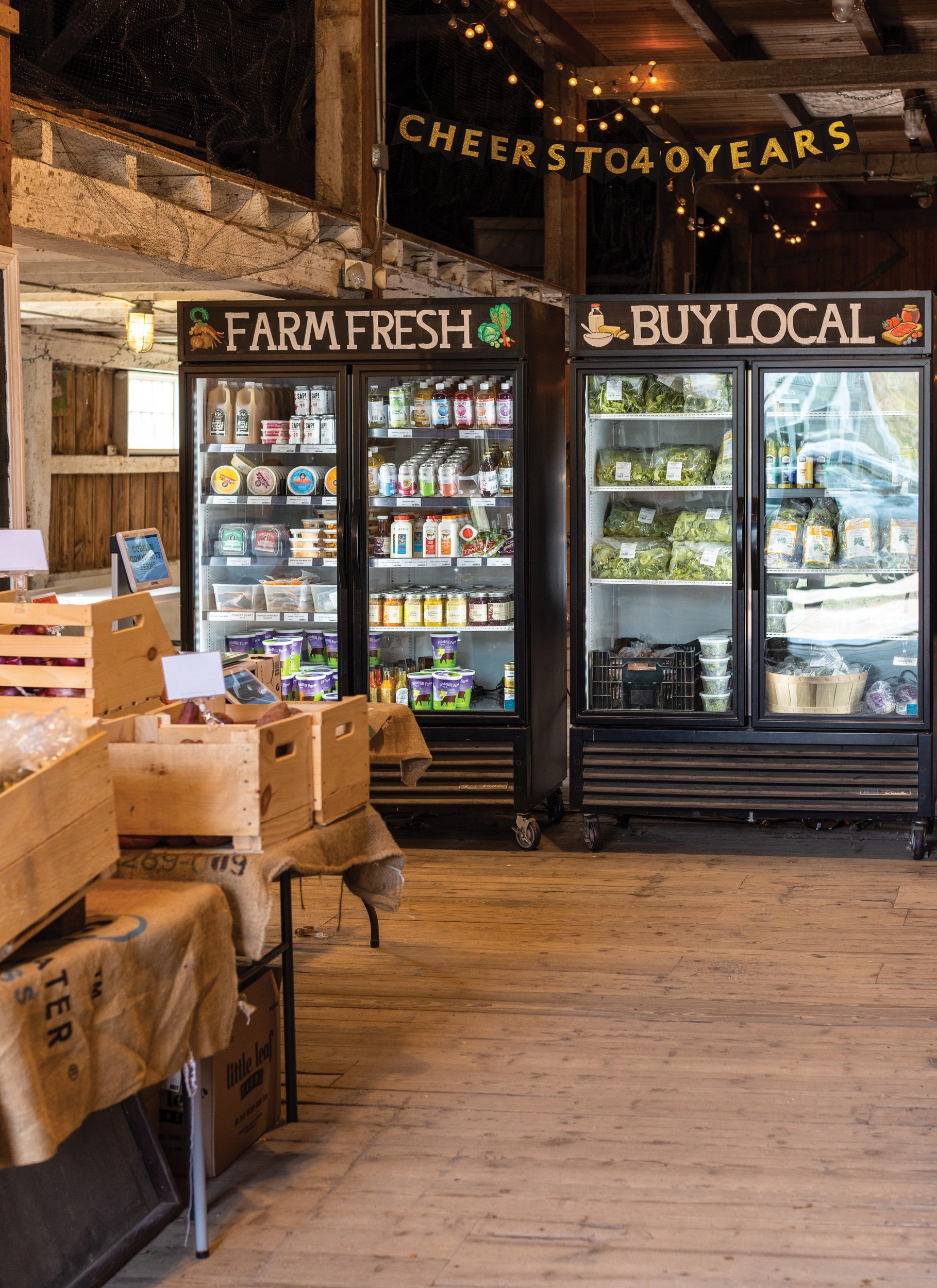Lincoln’s Farming Tradition Goes High Tech at Codman Community Farms
Photos by Linda Campos
In 2016, Pete Lowy signed on as the farm manager of the 150-year-old Codman Community Farms in Lincoln. The new role was challenging: The farm was losing money. The soil was depleted. The farm store was on life support and the community organization had lost touch with its community-based mission. But over the last six years, Lowy, the farm crew and the farm’s board of directors turned to high-tech solutions with a sprinkle of old-school family farming to bring Codman Community Farms back to life.
“Codman Community Farms was built with community support in the 1970s,” Lowy explains. “People were interested in saving this farm.” The Codman Family started the farm over 150 years ago and it remained a working farm until Dorothy Codman passed away in 1967, placing the land and assets into a trust. The Town of Lincoln then purchased the farm to create Codman Community Farm.
For decades, Codman Farms’ primary revenue came from hay. Livestock grazed only one or two pastures throughout an entire season, while the other fields grew the hay to sell to regional horse farms. Whereas many farms only cut hay twice a season, Codman often took a third, late-season cutting for additional cash flow. The haying operation and grazing practices left the fields beat up and the soil nutrient-deficient.
Before coming to Codman, Lowy and his wife, Jen Hashley, operated Pete and Jen’s Backyard Birds in Concord. As soon as they moved into the farm’s on-site house, Lowy applied their 12 years of experience rotating flocks throughout fields to Codman’s livestock operation. Lowy’s approach incorporated modern technology with rotational livestock management and farming practices. Now, sales exceed six figures. The soil teems with biodiversity and nutrients, and two of the farm’s top priorities are ecological and agricultural conservation.
“When I arrived, the farm’s endowment was hemorrhaging money and there was no clear direction,” Lowy says.
That first year, he and the crew got to work installing temporary electrical fencing around several fields so they could aggressively move livestock from pasture to pasture and let fields rest and regenerate between rotations. They also added movable water wagons, mobile pig pens, chicken coop tractors and rolling Shade Havens to the farm’s infrastructure. The equipment allows animals to graze pastures they’d never been on before. Lowy points to a red and black Shade Haven and explains that with this $25,000 piece of equipment, the cattle, which prefer shade, are easily moved throughout the day.
“We invested heavily in our systems to do a better job of moving animals. It is beneficial for the animals and the fields.”
Lowy has also built a community with his crew, along with the technology. Jared Martin, the assistant farm manager, is Lowy’s brainstorming partner. Together they balance using technology with old-fashioned elbow grease to run Codman. Along with an industrial designer, Lowy and Martin used a Small Business Innovation Research (SBIR) Grant to build the laying hens a mobile feed and water wagon.
Lowy also did away with hay sales, instead using the grass to feed his main cash crops—poultry, pigs and cattle. Now, Codman’s own animals are the only consumers of the farm’s hay. Livestock manure recycles the soil’s nutrients onto the pastures and feeds the soil microbes. This closed nutrient cycle builds more robust root systems. Critical soil nutrition stays on the farm and fields now boast organic matter and beneficial insect populations. Most importantly, meat, poultry and egg sales have made the farm a profitable enterprise.
Most people know the farm through the Farm Store. The historic 19th-century barn is on an 18-acre parcel near the Lincoln Commuter Rail station. Some days, visitors might spot farm animals in the pastures around the barn, but more than likely the animals are grazing another part of Codman’s patchwork of pastures. The farm comprises 160-plus acres spread across Lincoln in fields that range from three to 20 acres.
Customers can see 100 community garden plots, a market garden and pick-your-own flower fields from the barn’s parking lot. The original farm store occupied a small room in the northeast corner of the barn. Now, high-efficiency freezers line the back wall. The freezers’ crystal-clear doors and frost-free shelves highlight the farm’s frozen meat—stewing hens, chicken feet, pork sausages, roasts, steaks and ground beef. The farm purchased the freezers with a grant from the Massachusetts Department of Agricultural Resources (MDAR).
Customers get a taste of Codman Farms’ commitment to technology when they reach the self-service checkout stations. Some long-time patrons remember the way the self-service operation worked before Lowy arrived: A box held a series of cards. Customers would jot down purchases on the card and then either leave cash or deduct the purchase from their store credit. It was a simple, old-school credit system, but it was unsustainable. Handwritten notes were hard to translate and the bookkeeper couldn’t keep up with counting cash. A self-service technological solution meant the store could remain accessible.
Tyler Kennedy, the store’s manager, often works inside—stocking coolers, taking inventory or tidying up—but he doesn’t run the cash register. Instead, customers use one of three scanning stations with credit card readers. Every item has a custom barcode. Meat and produce are in pre-weighed packages with scannable labels. Automated scales make pricing loose items seamless. Shoppers can even pay with food assistance cards, SNAP and EBT, and a new fingerprint reader allows frequent shoppers to complete wallet-less transactions. The self-service stations were costly, as was the accompanying video surveillance system. Both took ingenuity and trial and error to install, but thanks to their intuitive operation, the farm store stays open 24-hours a day.
While the high-tech self-service stations are what people love to talk about, the farm’s focus on animal husbandry substantially impacts land conservation, soil health and animal welfare. For example, the farm just purchased a new no-till seed drill through another Massachusetts agriculture grant. The drill improves seed planting efficiency while minimizing the disruption to soil ecosystems in the process. Unlike the store’s freezers, customers rarely see the no-till drill but it is essential to the farm’s soil conservation efforts.
“With the no-till drill, we are playing around with annual forages and increasing perennial forages to increase yield and pasture density and increase soil organic matter and resiliency,” Lowy says.
To Lowy, purchasing both the freezers and the drill was part of what he calls “simple farm math.” He balances the cost of technology with keeping the farm’s operation lean, maintaining profitability and minimizing Codman Farm’s ecological footprint.
The self-service model also helped Codman increase its income throughout the pandemic. Before COVID hit, most of the store’s products came from the farm. Local stores and farms pivoted or closed altogether during the pandemic, but Codman Farms doubled down its self-service operation. Lowy reached out to other farmers who had lost income when restaurants closed and offered to sell their products at Codman. The farm store’s transformation was unexpected but intentional. The team focused on local food and quality products. The influx of new products forced the store to spill out of its corner room and into the barn’s cavernous entryway, where fruits and vegetables fill produce bins. Upright coolers house regionally produced lettuce and greens alongside a selection of cheese, butter, salami and milk. Baskets of fresh baked goods from local bakeries perch on top of tables, and the rustic wooden shelves hold pantry items like honey, flour and crackers.
What started as a lifeline for local farmers has turned into an opportunity for Codman Farms. Now, the store stocks grocery items from farms and artisans throughout New England. Revenues at the farm store nearly tripled, and the farm was also able to increase its donations to the Lincoln Food Pantry.
Looking to the future, rather than capitalizing on recent success by scaling the farm’s livestock operation, Codman is reinvigorating its original mission as a nonprofit community farm.
Now that the farm’s finances are in good shape and the soil is recovering, the farm is ready to grow the community aspect of its mission. Last year, the barn kitchen was remodeled with stainless steel countertops and a restaurant-grade range and hood. The farm can make food products, host catered events and teach cooking classes. Education, Outreach & Volunteer Manager Jess Myles is ready for a summer of new education programs, interactive events and community outreach. Visitors will learn about harvesting and cooking food, building soils, raising livestock and managing rural-suburban pastures.
As Massachusetts emerges from the pandemic, the farm is ready to bring people back and share what makes the place unique. “When I came here six years ago, it was sort of a grand experiment and the farm’s board members were willing to roll the dice with Jen and me,” Lowy says. “I think what we’ve accomplished here is amazing.”
Beyond land management, high-tech self-service scanners and stainless-steel kitchen counters, Lowy gets a little misty-eyed when he thinks about the new legacy his family is creating on Codman Farms. Like many farmers, he’s pondered what it means to pass along an agrarian lifestyle to his children. He is familiar with the tension between passing down a family farm to the next generation while also wanting his son to pursue his own dreams. Lowy is building a different kind of inheritance at Codman Community Farms, a legacy that will live on in the heart of a town just 20 miles from downtown Boston.
This story appeared in the Summer 2022 issue.


